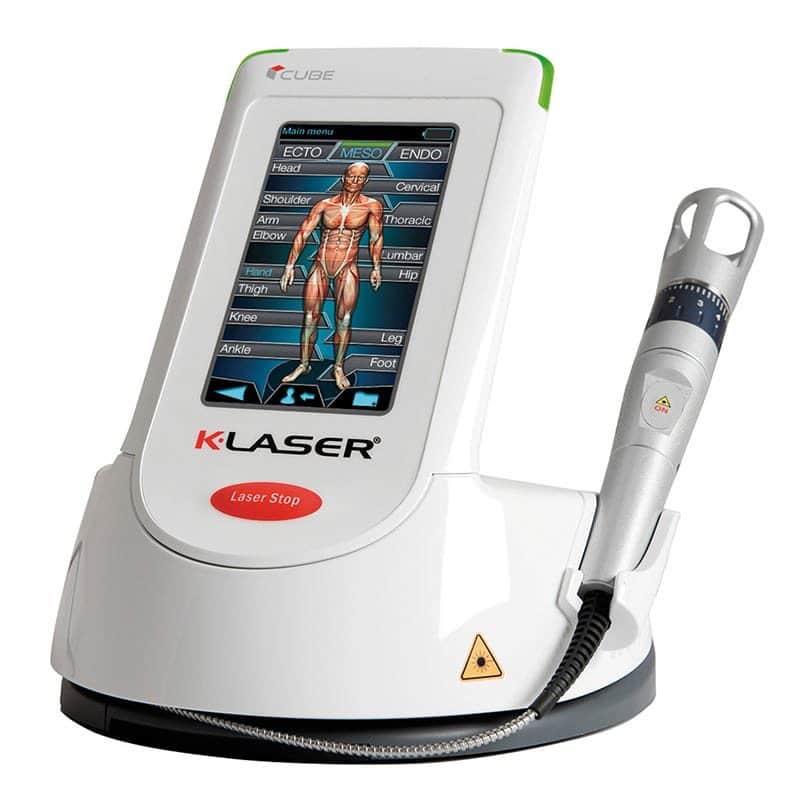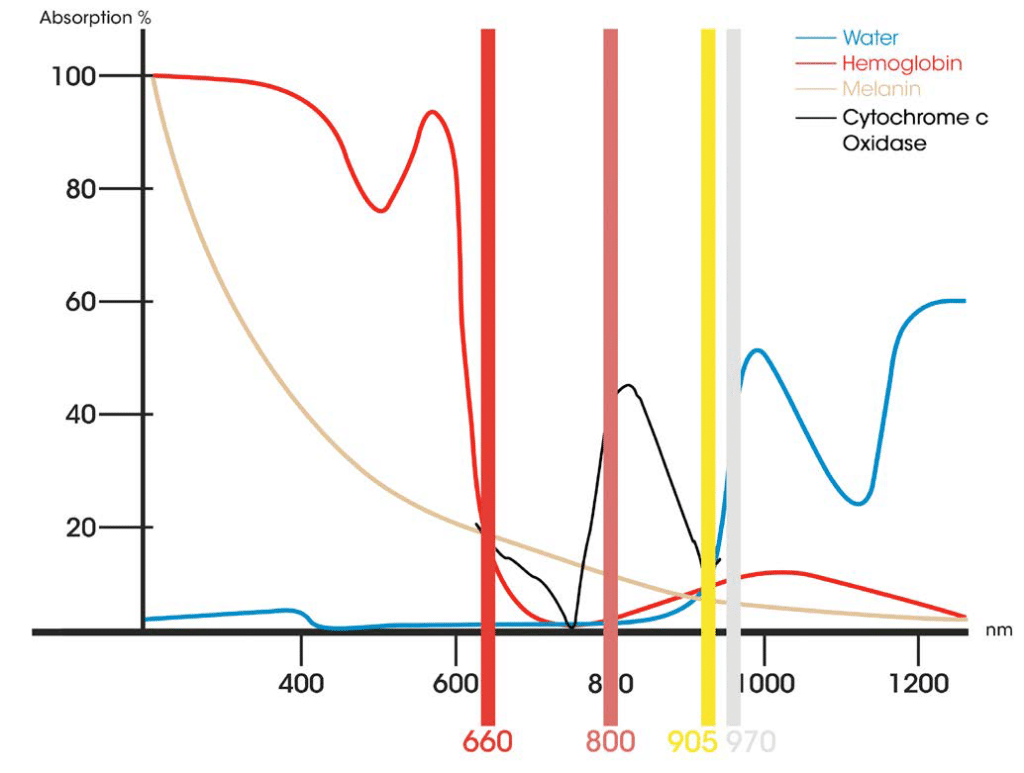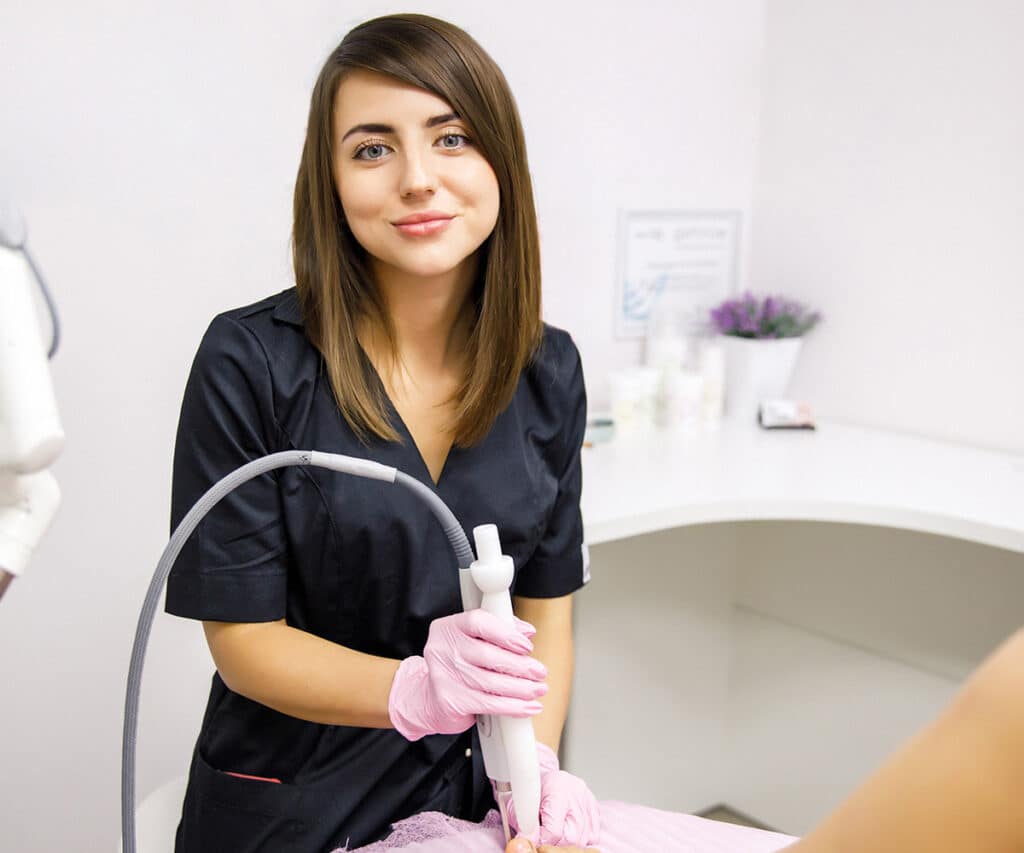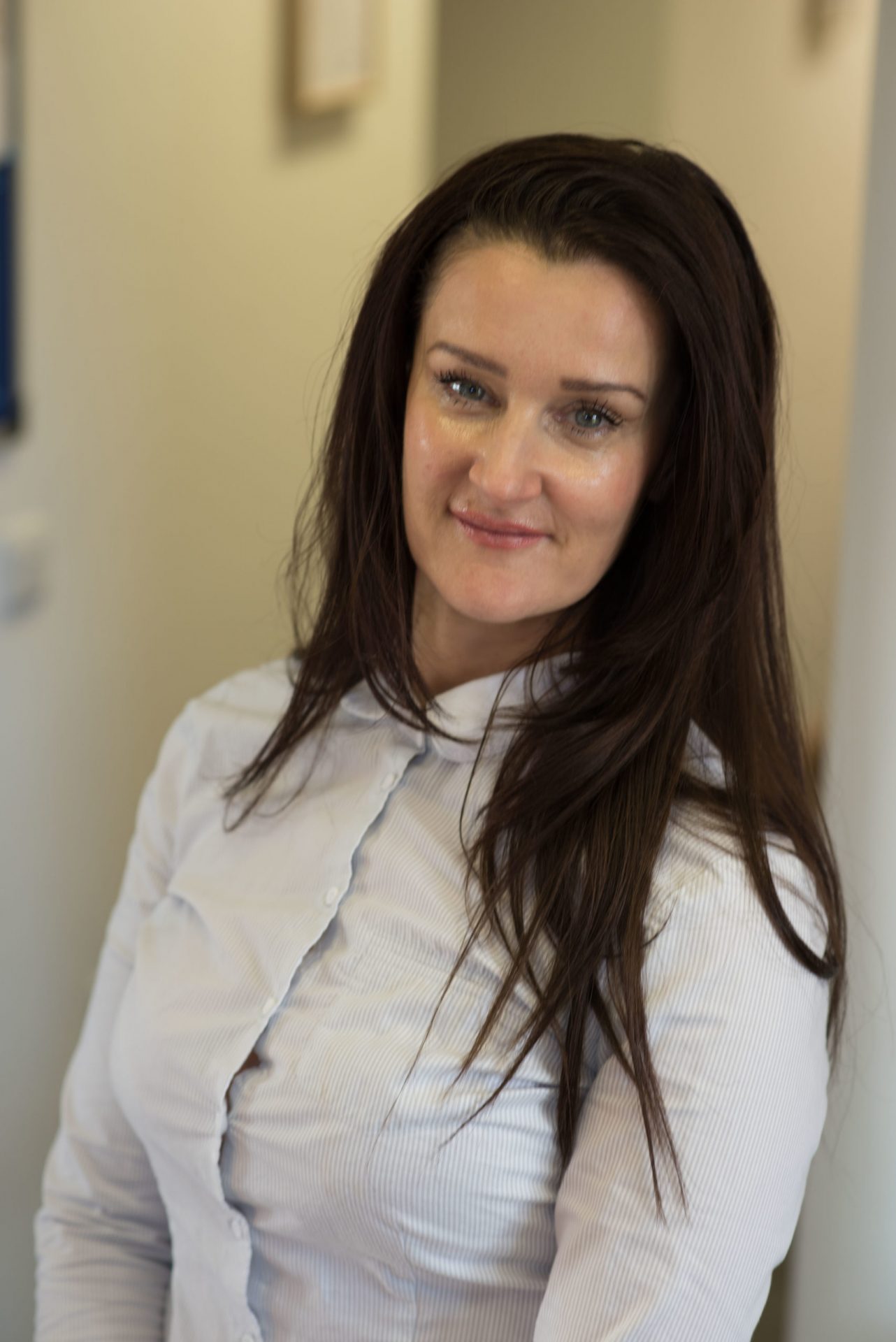Learn More About Our Laser Fungal Nail
At the Chelsea clinic, we are happy to introduce the K-Laser Dynamic therapy machine. Having tested various machines we decided that this machine due to its high-grade specificity, exceptional quality and high power available starting out with more energy at the skin surface treatment healing times are dramatically reduced compared to less powerful lasers. The K-Laser can deliver light energy either as a continuous wave or a pulsed wave.
How does laser treatment work for fungal nails?
Nail fungus can present in a variety of ways. The fungal nail infection often presents as thick or ragged and appears yellow, green, brown or black. An infected nail may separate from the nail bed and crumble when you cut the nail. You may also notice an unpleasant odour when cutting a fungal nail. Fungal infections are stubborn to treat and many people go through many over-the-counter creams and tinctures with little to no success.
Studies show that the laser kills toenail fungus and also encourages healthy nail growth with a single treatment in better than 80% of cases. Laser treatment is effective, safe, and also pain-free. Laser works by selectively targeting the fungal cells, heating them up and destroying them in the process. For this reason, laser treatment does not need any local anaesthesia, and there is no recovery period also. It’s a simple walk-in, walk-out procedure with no visible harm to the nail or skin and no side effects.

Does Laser work on fungal nails?
The K Laser dynamic machine with its very high-tech application uses several pulse frequencies to produce a combination of analgesia, inflammation reduction, bio-stimulation alongside antimicrobial effects notable in fungal skin and nail infections. This accelerates the regeneration of tissues increasing cellular energy which enables cells to absorb nutrients quickly and also eliminates waste cells effectively. Laser has anti-oedemic effects which produce vasodilatation activating the lymphatic drainage system so reducing swelling.
The number of times that the light is switched on or off per second is known as the ‘Frequency’. Different pulse frequencies elicit different physiological responses depending on whether bone, soft tissue or fat is being treated.
Wavelength significance
The wavelength of light has a variety of colours like a rainbow. It also determines its length of penetration. The longer a wavelength the more it will penetrate than shorter wavelengths.

Nanometers (nm) is the measurement of laser. Nm stands for a 1000th/1000000th meter.
660nm depth is well absorbed by melanin the colour pigment in skin. It is excellent for superficial areas such as skin excellent for wounds and scar tissue regulation. The laser light inhibits bacterial proliferation increasing cellular growth.
800nm At this depth maximal ATP production is achieved increasing oxygen absorption and also increasing cellular energy for healing and regeneration.
905nm facilitates peak absorption of light energy by haemoglobin, water, melanin and Cytochrome C oxidase (CCO). This results in more oxygen being available to the cells and so speeds up the natural healing process. CCO is essential for mitochondrial function. Mitochondria are the ‘powerhouse’ organelles found in cells.
Moreover, they take in nutrients breaking them down to create energy-rich molecules for cells known as cellular respiration. Lack of CCO function is likely to be lethal. (Collins, 2017)
970nm depth of laser light is excellent for heat absorption. Deeper layers can be treated at a cellular level. This toe fungal laser treatment setting boosts local microcirculation due to increased oxygen provided to the cells.
There are many alternative treatments for fungal nails but laser treatment is what we recommend to our patients.
References:
Collins, J.F. Chpt 7 – Copper: Basic Physiological and Nutritional Aspects. Molecular, Genetic and Nutritional Aspects of Major and Trace Minerals, 2017, PP69-83.
Are you suffering from foot problems? At The Chelsea Clinic, one of our podiatrist can assist and then recommend what nonsurgical treatments are best to get you back on track. ✅
Schedule an appointment here or you may call us at 44 (0) 207 101 4000. 📞
We hope you have a feetastic day! 👣☀️
-The Chelsea Clinic and Team




